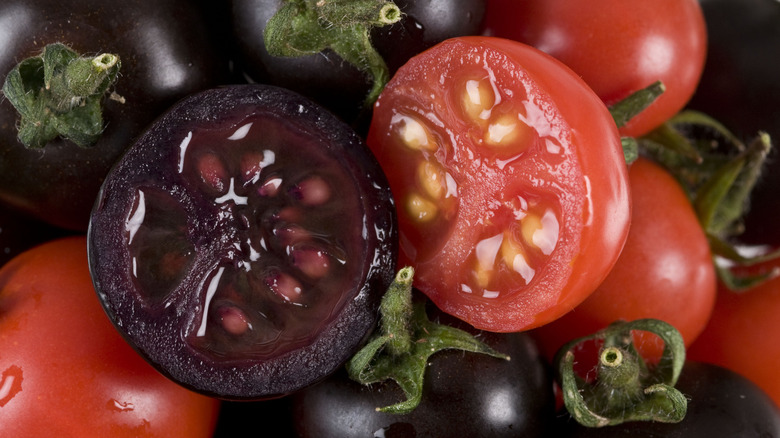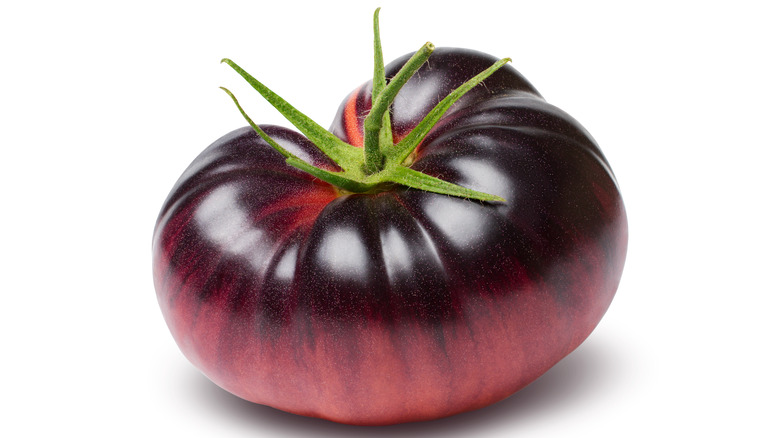Purple Tomatoes May Soon Appear In Your Local Grocery Store. Here's Why
By next summer, shoppers in the United States may be able to find an unusual new produce item at their local farmer's market: purple tomatoes. According to CNN, the USDA granted approval for the genetically modified fruit earlier in September to be sold, farmed, and bred in the U.S., having found that it was safe and "unlikely to pose an increased plant pest risk compared to other cultivated tomatoes."
The new variety of tomatoes is the product of British biotech company Norfolk Plant Sciences and obtained its color through gene-crossing with snapdragon DNA (per Daily Mail). The purple coloring occurs because the modified genes produce an increased amount of anthocyanins, an antioxidant pigment found in naturally low levels in normal tomatoes and prevalent in dark colored fruits like cranberries and blackberries.
While the purple tomatoes are said to taste just like their red counterparts, CNN reports that the modified tomatoes have double the shelf-life of regular tomatoes, making them a solid option for sustainability and preventing food waste. Additionally, the altered DNA and color means they contain 10 times more antioxidants than usual, giving them not only a unique, easily identifiable appearance, but also dietary benefits not usually found in genetically modified organisms (via Daily Mail).
Potential health benefits
As CNN notes, there has been mixed response to the growing prevalence of genetically modified produce. Most GMOs have been developed with the purpose of improving the farming process or sustainability, with the plants' impact on consumers being somewhat unclear, however, Norfolk Plant Sciences' tomatoes have the unique benefit of enhanced nutritional value.
Anthocyanins — the pigments responsible for the coloring of blue, purple, and deep red fruits and vegetables — are powerful nutrients with strong antioxidant properties. According to Cleveland Clinic, antioxidants are important because they control free radicals, which are unstable molecules produced as a by-product of stress or inflammation and can lead to a myriad of health problems, including Alzheimer's and certain cancers. Meanwhile, eating foods high in antioxidants has been proven to improve heart health, improve blood flow, and slow cancer development (per Cleveland Clinic).
Norfolk conducted studies on the purple tomatoes that showed that cancer-afflicted mice eating the GMOs lived 30% longer than similar mice eating ordinary tomatoes, proving the benefits of antioxidant-loading the fruits (via CNN).
After receiving USDA clearance, the tomatoes now need to gain FDA approval before Norfolk focuses on marketing them to consumers and home growers (per The Daily Mail). They could reach shelves by 2023.

